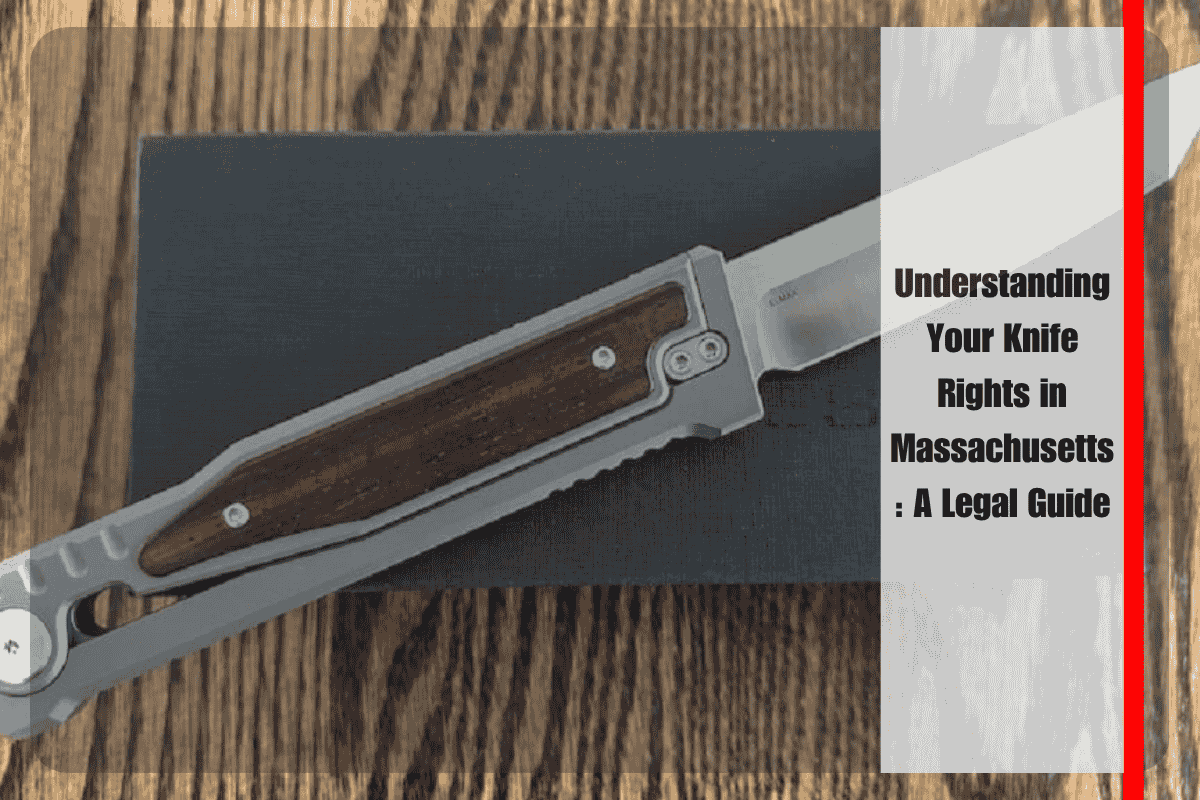In Massachusetts, as in many states, laws regarding knives and their ownership can be complex and often misunderstood. While knives are common tools used for various purposes, the legal rules governing them can vary greatly depending on the type of knife, how it’s carried, and where it’s carried. Understanding your rights and responsibilities regarding knives in Massachusetts is essential to ensure you stay within the law while possessing or using one.
In Massachusetts, knives are not outright illegal, but there are restrictions on certain types, as well as rules about where and how they can be carried. The law primarily focuses on the intent of the knife’s owner and the manner in which the knife is carried, rather than the knife itself. One of the key areas of concern for knife owners in Massachusetts is the definition of a “concealed weapon.” According to state law, a concealed weapon includes a knife that is hidden from view when carried on your person. Carrying a concealed knife without a valid reason can lead to criminal charges.
Massachusetts law makes a distinction between types of knives. Certain knives are considered dangerous or unlawful to carry, including switchblades and automatic knives. These knives, which open automatically with the press of a button or spring mechanism, are illegal to carry in public places, regardless of whether they are concealed or not. Additionally, knives with a blade longer than a specified length may be subject to restrictions, depending on the local ordinances of the town or city where you are located.
The state also has restrictions related to the intent behind carrying a knife. If you are carrying a knife with the intent to use it as a weapon, you could face more serious charges, regardless of the type of knife or how it’s carried. This intent could be inferred from the circumstances in which the knife is found or how it’s being carried. For example, if you are found carrying a large hunting knife in a public setting where such a knife is not typically needed, this could be interpreted as an intent to use it as a weapon.
Despite these restrictions, there are circumstances in which carrying a knife is lawful. For instance, if you are carrying a knife for lawful purposes, such as for work, outdoor activities, or as part of camping gear, it may not be considered illegal. In these cases, it’s important to ensure that the knife is not concealed in a manner that violates state laws. In general, knives used for recreational purposes, like folding knives or pocket knives, are less likely to attract legal issues as long as they are carried openly and are not used in an unlawful manner.
Local laws can also play a significant role in determining whether carrying a knife is legal. Cities and towns in Massachusetts have their own ordinances that may impose additional restrictions on carrying knives, including limitations on the length of blades or restrictions on carrying knives in certain public spaces, such as schools or government buildings. It is crucial to be aware of the local rules in addition to the state law to avoid potential legal issues.
If you’re unsure about whether carrying a specific type of knife is legal in Massachusetts, it’s always a good idea to check with local authorities or consult a legal professional. In some cases, a knife that’s legal in one part of the state may be illegal in another, so it’s essential to be fully informed before carrying a knife in public spaces.
Understanding your knife rights in Massachusetts requires an awareness of both state and local laws. While knives are legal to own and carry under certain conditions, restrictions exist based on the type of knife, how it’s carried, and your intent. Knife owners should avoid carrying concealed knives unless there is a legitimate reason, and be particularly cautious about switchblades and automatic knives, which are strictly prohibited. It is always important to stay informed about the laws in your area and seek legal advice if you are unsure about the regulations surrounding knives in Massachusetts.
Sources
[1] https://www.tektoknives.com/blogs/news/massachusetts-knife-law-update-switchblades-now-legal
[2] https://www.akti.org/state-knife-laws/massachusetts/
[3] https://worldpopulationreview.com/state-rankings/knife-laws-by-state
[4] https://www.tenforjustice.com/a-guide-to-carrying-knives-in-massachusetts-what-you-should-know/
[5] https://www.arenaaccessories.com/Big-Changes-in-Massachusetts-Switchblade-Laws-in-2025–What-You-Need-to-Know_b_16.html












